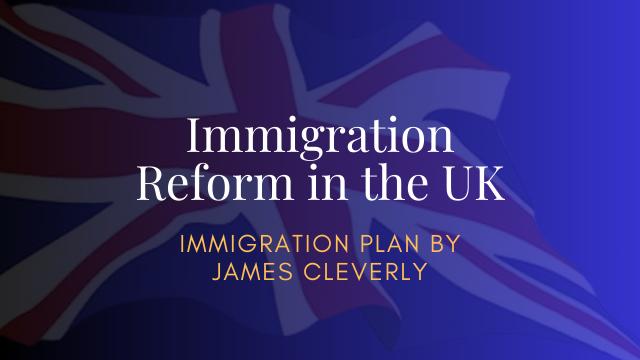
Immigration Reform in the UK
Immigration Reform in the UK: Striking a Balance for a Sustainable Future
In a bold move to reshape immigration policies, the UK government has outlined a comprehensive plan aimed at addressing concerns related to the Health and Care Visa, salary undercutting, shortage labor practices, and the Graduate route. This article delves into the intricacies of the proposed reforms and their potential impact on the nation’s workforce and economy. Immigration Reform in the UK
1. Ending Health and Care Visa Abuse
1.1 Family Dependence Restriction
To ensure the Health and Care Visa is used appropriately, the government intends to restrict overseas care workers from bringing family dependents. This measure aims to focus on individual contributions and minimize the strain on public services. Immigration Reform in the UK
1.2 Regulation by the Care Quality Commission
Care firms in England will now be required to be regulated by the Care Quality Commission to sponsor visas. This step is envisioned to enhance the quality of care services and ensure a symbiotic relationship between immigration and healthcare standards. Immigration Reform in the UK
1.3 Financial Contribution Expectation
Acknowledging the valuable contributions of foreign workers in the NHS and health sector, the government plans to increase the annual Immigration Health Surcharge by 66%. This financial boost aims to ensure migrants make a substantial contribution to the country’s health services.
2. Salary Protection for British Workers
2.1 Skilled Worker Earnings Threshold Increase
In an effort to prevent immigration from undercutting the salaries of British workers, the skilled worker earnings threshold will be raised by a third to £38,700. Notably, Health and Social care Visa routes will be exempt, recognizing the crucial role healthcare workers play. Immigration Reform in the UK
3. Overhauling Shortage Labor Practices
3.1 Ending Salary Discounts for Shortage Occupations
To discourage cut-price shortage labor from overseas, the government will eliminate the 20% salary discount for shortage occupations. A thorough review of the shortage occupation list will be conducted to align it with the new higher skilled worker salary threshold. Immigration Reform in the UK
3.2 Family Visa Financial Support
To ensure that dependents are financially supported, the minimum income for family visas will be raised to match the minimum salary threshold for skilled workers (£38,700). This move aims to promote responsible immigration practices. Immigration Reform in the UK
4. Scrutinizing the Graduate Route
4.1 Reviewing Overseas Masters Students’ Family Access
Building on the ban on overseas Masters students bringing family members, the government plans to review the Graduate route. The objective is to safeguard the integrity of the UK’s higher education sector and prevent potential abuses. Immigration Reform in the UK
5. Curtailing Illegal Migration
5.1 Success of the “Stop the Boats” Initiative
The government boasts a successful reduction in small boat arrivals by a third, counter to the rising trend of illegal migration across Europe. This decisive action reinforces the commitment to curbing illegal migration and maintaining a fair and sustainable immigration policy.
In conclusion, the proposed immigration reforms signal a paradigm shift in the UK’s approach. Balancing the needs of the economy with stringent measures, the government aims to foster a fair, consistent, and legal immigration system. While these changes may pose challenges, they underscore a commitment to a more sustainable and controlled immigration landscape.










